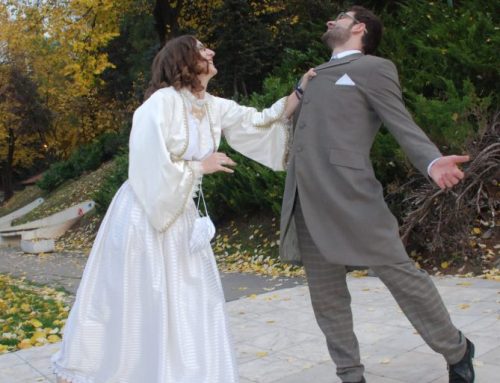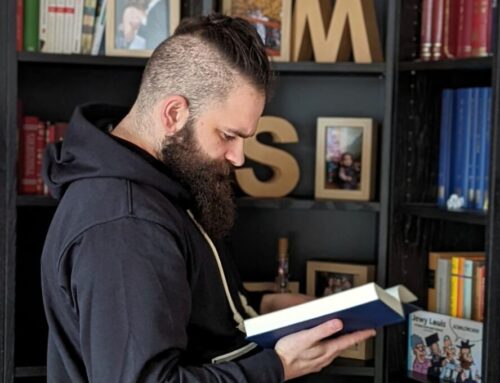Like a mother, I don’t even know how many times I’ve uttered the phrase “my good girl” or “be a good girl,” inadvertently feeding the “syndrome of a good girl.” But what does it actually mean?
“Be a good girl” primarily means be obedient (not to say submissive).
Don’t be too loud.
Don’t stand out.
Shrink yourself, so you don’t take up too much space.
Give up your toy, seat, or position to someone else.
And, of course, don’t pose a threat to boys.
Because good girls don’t oppose anyone.
Good girls don’t argue with anyone.
Good girls are always smiling.
In their company, no one feels bad or uncomfortable.
All of this leads us to be programmed to be obedient and to prioritize others’ needs and feelings over our own.
To step aside and remain silent.
Because we are good girls.
Of course, all of the above is socially conditioned behavior and the main characteristic of a patriarchy in which girls, and later women, are placed in a subordinate role.
It’s dangerous and hypocritical that we call this subordination “positive” traits under the guise of the “good girl” cliché.
Boys are raised differently.
They are allowed to be loud – because they are boys.
They are allowed to make a mess because they are boys, and they are full of energy.
No one criticizes them in the same tone and with the same connotations because “being a good boy” cannot in any way be compared to what it means to be a “good girl.”
And that’s why it’s socially accepted that every male behavior can be justified with the familiar phrase “boys will be boys,” and even the saying “bad boy” is socially accepted as something sexy and enticing, not negative.
That’s patriarchy “in a nutshell”.
And with time (as we grow up), it doesn’t go away.
Good girls become “good women” (or good wives).
And “boys will be boys.”
And those same boys become men who believe that the whole world should be subordinate to them, primarily because they are men.
These same boys are upset that women are now fighting for their rights which in their eyes means taking away something that rightfully belongs to them.
That’s why they’re bothered by Barbie movies.
That’s why it’s not okay for them when a woman has short hair.
When a woman earns more than them.
Or has a better position, which, imagine this, she didn’t get “just because she’s a woman” but because of her competence.
When she says “NO” loud and clear.
When she doesn’t constantly smile.
When she doesn’t move out of the way of those coming towards her on the street.
When I think about “good girls,” I can’t help but think of the scene from Titanic when Rose, in her phase of breaking free from the shell of the “good girl,” is having dinner with her mom and her friends (where her mother, of course, doesn’t take her and her needs seriously because what she says must align with what’s expected of her).
Rose sees a girl at a neighboring table, no older than 5 or 6, who, nicely and obediently with white gloves on her hands, straightens her back and like a “real little lady” places a white handkerchief on her lap so that she doesn’t get dirty while eating.
That’s a turning point in the movie because Rose realizes that she has also been “trained” from birth to be just like that – a good girl. And then she finally starts acting the way she feels, which goes against the “codes.”
I was raised to be good girl.
Always good.
Well-behaved.
Never rude or loud.
Never disobedient.
Always followed the rules.
Always checked all the boxes.
Always respected authorities.
But I don’t want Sofka to be a good girl.
I want to further break the cycle we’ve been spinning in for centuries.
I want her to be loud.
To laugh loudly and express her opinion, even when no one agrees with her.
To say a clear and loud “NO” to anything that doesn’t suit her (yes, even to us as parents or any other kind of “authority”).
To never belittle herself so that others appear larger.
To not be ashamed of what she knows and allow others to convince her she’s wrong just because their self-confidence is greater.
I want her to snap back with her “yes, so what?!” every time someone tells her “but dinosaurs are toys for boys.”
I no longer want to be a good girl! And I don’t want to raise a good girl!
I want to raise a strong and self-aware girl!
One who knows what she wants and isn’t afraid to achieve anything in life.
One who says exactly what she feels and doesn’t suppress her feelings “for the benefit of others.”
And puts her needs ahead of others’ expectations.
That’s the kind of girl I try to be.
That’s the kind of girl I want Sofka to be.
That’s the kind of girl I want every girl and woman in the world to be!
Let’s change the narrative!
I try not to tell Sofka that she’s a good girl anymore, but that she’s a strong girl.
That she’s a brave girl.
That she can do anything, and she doesn’t have to do anything.
I’ve been told many times that I can’t change the world.
I’ve proven that I can.
I got the opportunity to be a mom and bring a new life into this world.
And if that life is more aware and better than the standards that prevailed before, if that’s not changing the world – I don’t know what is.
I did it. So can you.






Leave A Comment